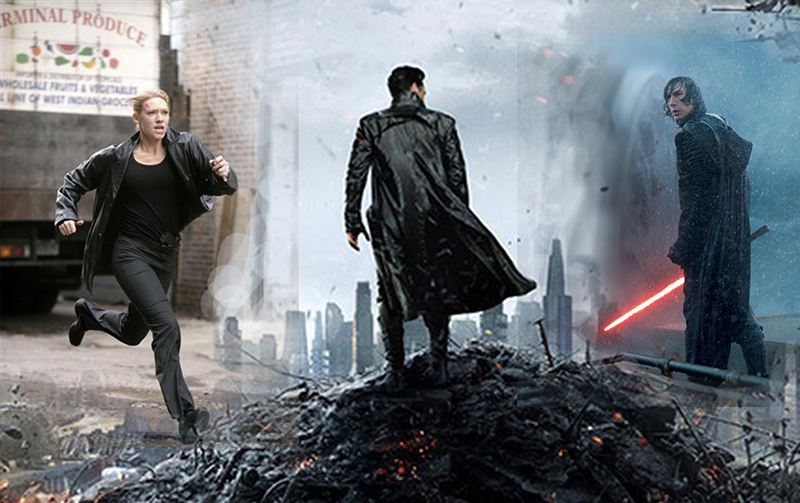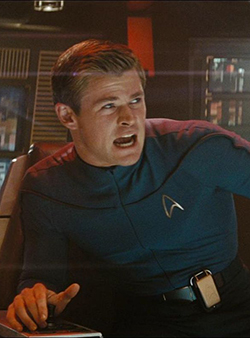J.J. Abrams’ Problem With Storytelling In Nerdy Movies

I have always struggled to have some great J.J. Abrams take. As I’ve grown as a person who watches movies I can’t help but notice that I don’t really like his stuff. For the same reason. Every time. It’s not controversial to say J.J. doesn’t like endings. Besides Star Wars Episode IX: Rise of Skywalker the only thing he’s finished is Felicity. Yes, he made Felicity, that late nineties to early aughts tv-drama about a girl who goes to college and struggles to find her identity. It ends with out of nowhere time-travel. Cool. (Patrick H. Willems does an excellent video on Felicity and storytelling and how he thinks it may pertain to Star Wars Episode IX).
Rise of Skywalker is a collection of all of the cliches that he’s amassed over the years and it makes me want to tear my hair out the more I think about it. I am sitting here and listening to his TED Talk about the mystery box theory of his work. Mystery boxes are kind of what they sound like, mysteries posed to the audience: obscured history, what (or who) is driving the plot, how characters are related and etc. If you are familiar with plot conventions this might sound like setup. That’s because, insofar as I can tell, it is. I left the theatre (both times) and wanted to grab the closest brunette, bespectacled man and shake them, all while shouting “THE MYSTERY BOX ISN’T WORTHWHILE IF IT NEVER PAYS OFF”
It’s a mystery why Abrams can’t end things
Mystery boxes are great for the first film or few episodes in a series. Mysteries hold the audience’s attention. When a mystery is presented in a film, however, there is generally the expectation that an answer or resolution is coming.The resolution of the story informs the themes throughout the narrative. The physical mystery box that inspired this method is one he bought at a magic store that he’s never opened. So where does that leave the mysteries? The themes? Well it seems that if you’re J.J. Abrams you leave them with other writers and hope that they know what to do with them. Themes make movies feel more defined and add depth. While I don’t believe that all questions need to be answered in a film, when the audience leaves the theatre I do think that the answers we do get should work in the narrative we’ve received up to this point.
The Star Wars Sequel Trilogy was written movie to movie with no overarching plan. Abrams made the first film, The Force Awakens, which uses the mystery box ideology quite to its benefit. While setting up a set of classic Star Wars tropes it also sets up new mysteries. Who is Rey? Where did she come from? Where is Luke Skywalker? Who is Supreme Leader Snoke? Why isn’t R2 working? Most of these questions are answered in the film but not all of them. The unanswered questions help the viewer to stay engaged between the films. Some of these questions are answered in the following film but not all of them. Narrative themes are often defined by the beginning and the end of story arcs and The Force Awakens is a strong beginning in that regard. The series as a whole suffers under its lack overall direction and vision despite the beginning’s mystery boxes.
I think it’s safe to say, based on (many) interviews I’ve read with Abrams, his understanding of the hero’s journey comes largely from Luke Skywalker in Star Wars Episodes IV, V and VI. While on the press junket for Star Trek he mentioned using it as a platform to make the Star Wars movie he always wanted to make. (Check out his interview with Jon Stewart for more.) Star Trek (the TV series) was often known for its deep looks at issues that are still relevant to this day. Star Trek (2009) is a really solid science fiction action/adventure film. It’s about James Kirk’s decision to join Starfleet and his journey to really commit to it. Star Trek: Into Darkness is also about this; it doesn’t further the story of the Captain or crew. Felicity is also about this. Rey’s narrative also ends up with her back where she started (not the same desert planet but still a desert planet) with some new skills and a larger social network but, at least to my eyes, largely unchanged.

Teasing apart the often aesthetically pleasing and visually interesting layers of his works has left me with honestly very little. I don’t know what J.J. Abrams has ever been trying to tell me. Sometimes movies don’t need to have deeper meanings — a good action movie can just be a good action movie. I don’t think that’s what J.J. Abrams is trying to do, though. When Rey finally says her name is Skywalker it seems that something is there but the only thing I can find is that “It doesn’t matter where you come from” which is what Rian Johnson’s The Last Jedi’s message was. As well as Star Trek, Into Darkness, Super 8, and even The Force Awakens. Rey was nobody from nowhere. Then a movie was made about how she was somebody from somewhere and chose to defy that legacy. Why bother? That’s the journey of the ORIGINAL STAR WARS TRILOGY.
The thing that makes me the most upset, however, is that Rise of Skywalker contains, quite possibly my favorite moment in all of Star Wars. After Kylo Ren’s been stabbed and Rey has run off we have an incredibly touching scene with Kylo Ren (now Ben?) with his dead father, Han Solo. This scene is short, but has heart and shows that J.J. Abrams understands Kylo Ren’s emotional turmoil. Only when he is able to embrace his father is he truly able to return to Ben Solo, boy hero. I wish there was this much care in all of his work.
He also co-wrote a novel with Doug Dorst called S. After revisiting it I firmly believe that this is the best writing partnership Abrams has had to date. This first two thirds of the novel is spent crafting an intriguing set of mystery boxes, they’re presented to the reader as odd, pristine things and then slowly, throughout the rest of the narrative some of the boxes are opened. By the end of the narrative however, our two main characters (whose story is scribbled exclusively through notes in the margins and notes stuffed in the book) are so compelling that we care more about them than the rest of the boxes. Whether or not they figure out how to open them is kind of beside the point. What matters is the two of them.
I can’t help but wonder if this is what he thought he was accomplishing through Rise of Skywalker. The mystery boxes weren’t all opened (most were barely touched, frankly and very few were answered satisfactorily) but we got to the bottom of our main characters. If this had been handled more consistently with the other two installments in the trilogy I suppose this could’ve worked. It doesn’t matter where you come from, it’s who you are and who you love that will save the Galaxy. (Which is weirdly also co-opted from the Last Jedi, but don’t worry, I won’t tell anyone).



